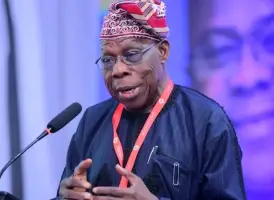Governor Seyi Makinde of Oyo State has ignited fresh debate on Nigeria's electoral system by advocating for a single term of five or six years for presidents, governors, and local government chairmen, arguing that the current two-term structure hampers effective governance.
Makinde, who is currently serving his second term, observed that elected officials typically focus on governance for only about five years out of their potential eight-year tenure due to various distractions.
"I was just looking at the trajectory for me in government. I have spent six years already and due to no fault of anybody, we lost the year 2020 because of the COVID-19 pandemic," Makinde stated. "We lost almost one year campaigning all over the place for the second tenure. Now, people have started distracting us on what I want to do next and all of that."
The governor emphasized that the effective governance period is significantly shorter than the constitutional eight years. "So, I feel that, effectively, the time we can say we are very serious with governance is just about five out of the eight years. That is why I feel if you remove all these distractions, a single tenure of five or six years is actually enough to focus and do the work that we are trying to do in eight years."
Previous Legislative Attempts
This is not the first time such a proposal has been considered. In November 2024, the House of Representatives rejected a bill seeking to amend the 1999 Constitution to provide for a single six-year term for presidents, governors, and local government chairmen. The bill, sponsored by Hon. Ikenga Ugochinyere and 33 other lawmakers, aimed to ensure inclusive governance and reduce wastage from frequent elections.
The proposed legislation specifically sought to alter Sections 76, 116, 132, 136, and other relevant sections of the 1999 Constitution.
Expert Opinions
Activist lawyer Maduabuchi Idam supports Makinde's call, arguing that the current two-term system distracts incumbents from addressing critical issues in security and economic sectors.
"I have maintained in several fora and I will reiterate here that the four-year two-tenure system is an albatross to Nigeria's economic, security and political stability," Idam told BenriNews. "It has systematically discouraged development and has also brewed instability in Nigeria."
Idam cited the current administration as an example, claiming that President Tinubu appears distracted by "2027 electoral phobia" rather than focusing on security and economic challenges. He urged the National Assembly to revisit the single six-year tenure bill "with the urgency it requires if Nigeria must be saved from the shackles and manacles of political slavery and its attendant underdevelopment and instability."
However, Hakeem Baba-Ahmed, former Political Adviser to President Bola Tinubu, offered a different perspective. He emphasized that the notion of a guaranteed two terms is not constitutional.
"The clamour for two terms have no place in the constitution; the constitution provides for elected people to serve for four years, at the end of the four years like in the case of the governor and president – if they so desire to be reelected, they come back to the electorates to demand for another mandate," Baba-Ahmed explained.
Baba-Ahmed further argued that constitutional amendments alone cannot transform governance without addressing the quality of politicians. "So long as we have the same type of politicians, whether you give them one term and ask them to go back for another one term or you give them six years, they both have the same type of poor governance."
He expressed skepticism about the current National Assembly's willingness to amend the constitution in ways that might challenge executive interests.
Legislative Support
Rep. Ikenga Ugochinyere, who represents Ideato Federal constituency of Imo State and was a sponsor of the previously rejected bill, remains committed to the cause.
"I sponsored the bill even though it didn't go but we are coming back," Ugochinyere told BenriNews. "I will be representing the bill for a single term of six, rotational presidency and all elections in one day."
According to Ugochinyere, a six-year single term "will reduce waste, bring more development and the call is timely." He also noted that his proposal for holding all elections in one day has already passed second reading after being reintroduced.
As the debate continues, the proposal raises important questions about the structure of Nigeria's electoral system and how it impacts governance effectiveness, resource allocation, and political stability.
Follow BenriNews on Facebook | Twitter | LinkedIn | WhatsApp | Telegram













